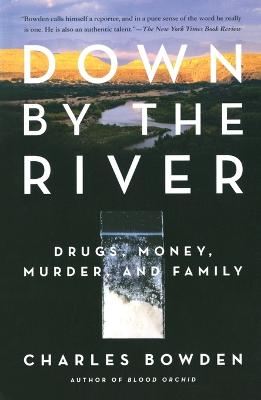“This unwritten history takes place down by the river, on the fabled banks where two nations meet. The official history is about the corruption of Mexico. The unwritten history, or the one that is almost instantly erased, is about the corruption of both nations. In this unwritten history, the drug merchants are almost the only honest players: vicious, greedy, murderous, and candid about their behavior. They are also the only real defenders of cutthroat capitalism since they literally cut throats and employ people based on their talents and with little regard to their sex, race, class, color, or religion. They are also one of the few industries in the developing sectors of the earth that really do redistribute income and do so at a level without parallel in the thousands of assembly plants now employing the poor of the planet.”
Here is a little slice of that unwritten history. The drug trade that’s greater than the straight economies of about three-fourths of the world’s 207 nations. The drug world where, as Bowden says, “I can’t even produce a metaphor for the drug world anymore. I don’t even like the phrase the drug world since the phrase implies that it is a separate world.”
(“People in the US are more timid than in Mexico. In the US, oh, maybe the sheriff is corrupt and so forth, they think. This naïveté is incredible.”)
So I will not deplore it, this business as basic as Citibank. As American. And I haven’t grown weary of contemplating it, not quite yet.
“There are things— the gulag of slave labor camps in the former Soviet Union, the burning bodies of the Holocaust in Europe, the clanking chains of human bondage in the United States— that intelligent and honest people know occurred and yet grow weary of contemplating. The drug business is not like such things. Beyond some songs, a few action-packed movies, the drug business is never really acknowledged. Drugs may be the major American story of our era, the thing that did more to alter behavior and law, that redistributed income to the poor far more dramatically than any tinkering with tax codes, that jailed more people and killed more people than any U.S. foreign policy initiative since the Vietnam War. But this vital force, this full-tilt-boogie economic activity, is absent from our daily consciousness and only surfaces when discussed as a problem. And this problem is always placed on the other side of town or the other side of a line or the other side of the river.”
